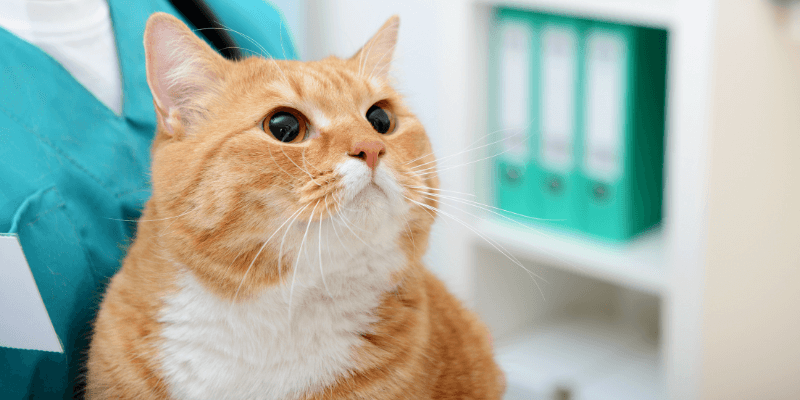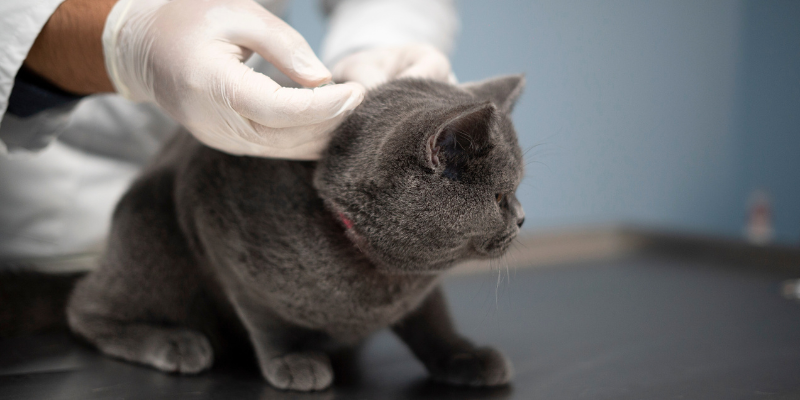[et_pb_section fb_built=”1″ _builder_version=”4.14.2″ _module_preset=”default” custom_padding=”0px|||||” global_colors_info=”{}”][et_pb_row _builder_version=”4.14.2″ _module_preset=”default” global_colors_info=”{}”][et_pb_column type=”4_4″ _builder_version=”4.14.2″ _module_preset=”default” global_colors_info=”{}”][et_pb_text _builder_version=”4.14.2″ _module_preset=”default” global_colors_info=”{}”]
Seeing your pet afflicted with any unwellness or injury can be very worrying and may leave you feeling helpless or uncertain, especially if you’re unsure whether their condition warrants an emergency or after-hours veterinary assessment.
With this in mind, we’d like to provide some general information about common emergency symptoms, so you can feel informed about the best course of action should your pet ever be similarly affected.
Weakness, collapse or a sudden inability to walk
If your pet collapses or seems generally weak, this can indicate a severe unwellness causing shock (low blood pressure), such as dehydration from gut upset, blood loss from internal bleeding or heart disease. It can also indicate a snake bite, tick paralysis or a severe allergic reaction to a bee sting, or even brain/spinal problems.
In very young animals (especially toy breeds), general significant unwellness can lead to low blood sugar, which can cause weakness or even seizures.
An obvious traumatic injury
If your pet has just experienced a significant trauma, such as a high fall, they should be assessed urgently, as bruising injuries to the lungs or internal organs can worsen over several hours. Pets should also be assessed urgently if they have a wound that is steadily dripping blood.
Breathing difficulties
Breathing difficulties can be caused by problems with the airways or within the lungs, or issues affecting the chest. They can cause pets to have an increased breathing rate, more noticeable chest or abdominal breathing movements or even begin gasping for breath.
Brachycephalic (flat-faced) dog breeds often have narrow nostrils, excessive tissue in their throat and narrow windpipes. These breed-related issues can be worsened by significant heat or stress, causing sudden breathing distress.
Common lung issues include congestive heart failure (where fluid accumulates in the lungs) or pneumonia.
Issues affecting the chest include trauma (such as being hit by a car or a small pet being attacked by a larger dog), or bleeding within the chest due to rat bait poisoning.
Inability to pass urine
An inability to pass urine can be caused by severe kidney damage (e.g. lily poisoning in cats), or obstruction of urinary flow, such as bladder stones becoming lodged in the urethra. Trauma causing spinal issues or bladder damage may also cause urine to be retained within the body.
Pets may strain when attempting to pass urine, or just become very lethargic due to the build-up of waste products in their bloodstream.
Ingestion of a toxin
If you know that your pet has eaten something potentially toxic (e.g. human medications or rat bait), it warrants an urgent phone consultation with us for further advice. Depending on what your pet has eaten, and when, we can recommend appropriate treatment or monitoring.
Severe pain
Any cause of significant pain (especially pain of the neck or spine, or pain within the belly) lasting for more than five minutes warrants an urgent veterinary assessment.
If your pet is experiencing any of these symptoms, we advise calling us for urgent advice. Rest assured, our team are always here to help your pet and set your mind at ease.
[/et_pb_text][/et_pb_column][/et_pb_row][/et_pb_section]






